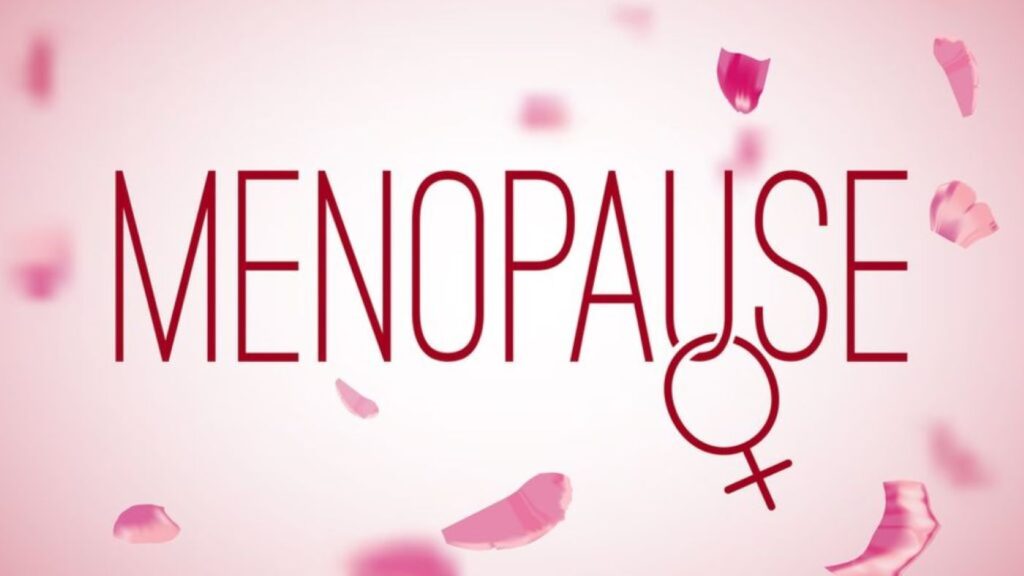Health
Exploring the Stages of Menopause
Menopause is a natural biological process that marks the end of a woman’s reproductive years, but it encompasses more than just the cessation of menstrual cycles.
In this comprehensive article, we delve into the stages of menopause, shedding light on the physiological changes, symptoms, and transitional phases that women may experience during this significant life transition. From perimenopause, with its fluctuating hormone levels and irregular periods, to the postmenopausal phase marked by hormonal stabilization and potential health concerns, each stage offers its own set of challenges and opportunities. Join us as we navigate through the stages of menopause, offering insights, guidance, and support for women embarking on this transformative journey.
Menopause is a natural biological process that every woman will go through in her lifetime. It normally occurs between the ages of 45 and 55, signaling the end of menstruation and fertility. Understanding the stages of menopause can help women deal with the physical and emotional changes that accompany this transition.

Perimenopause: The First Stage of Menopause
Perimenopause is the earliest stage of menopause, which often begins several years before menopause itself. During this stage, a woman’s hormone levels begin to vary, resulting in irregular periods and symptoms such as hot flashes and mood changes. Perimenopause lasts around four years and varies from woman to woman.
Menstrual irregularity is a key sign of perimenopause. Women’s cycle lengths and flow rates may vary. Some may even skip periods completely. These changes occur as estrogen and progesterone levels fluctuate and fall.
During perimenopause, women may experience more than just irregular periods. Hot flashes, or rapid bouts of heat and perspiration, are among the most prevalent symptoms. Mood swings, impatience, and difficulties sleeping are also common at this stage. Some women may report vaginal dryness as well as diminished sex drive.
Managing perimenopause symptoms can be difficult, but women can take actions to alleviate their discomfort. A healthy lifestyle, which includes regular exercise and a balanced diet, can help relieve symptoms. Some women may receive relief from alternative therapy such as acupuncture or herbal remedies. Women should contact with their healthcare professional to find the best way for managing their symptoms.

Menopause: The Second Stage of Menopause
Menopause is the second stage of menopause, defined as the absence of menstrual cycles for 12 months. Women may still have a variety of symptoms at this point, but their fertility has dramatically decreased. The average age of menopause in the United States is 51, but it can come sooner or later depending on genetics and overall health.
The most noticeable sign of menopause is the loss of monthly cycles. However, menopause is more than just the loss of menstruation. Many women endure various physical and emotional problems. This period is characterized by hot flashes and nocturnal sweats, which might interfere with sleep and daily activities. Increased irritation or anxiousness may also develop.
In addition to these symptoms, menopause can have long-term consequences for a woman’s health. Lower estrogen levels can cause bone density loss, increasing the risk of osteoporosis. Changes in cholesterol levels and metabolism can also occur, raising the risk of heart disease and weight gain. Regular exercise, a nutritious diet, and regular check-ups with a healthcare practitioner are critical for addressing these potential health problems.
Postmenopause: The Third Stage of Menopause
Postmenopause occurs after menopause and lasts for the duration of a woman’s life. Many of the symptoms of menopause are relieved during this stage, while some women may still endure vaginal dryness and bone loss. The hormonal changes that happened during perimenopause and menopause settle down, and women enter a new stage of their life.
While postmenopausal symptoms may be less severe than those experienced during perimenopause and menopause, women should continue to take care of their health. Vaginal dryness can cause discomfort and necessitate the use of lubricants or hormone therapy. Weight-bearing workouts, as well as calcium and vitamin D supplementation, can help to reduce bone loss, which raises the risk of fracture.
Postmenopause presents new opportunities and considerations for women. With the end of fertility, women may be free of the burdens of contraception and menstruation. However, it is critical to schedule regular check-ups with a healthcare practitioner to evaluate overall health and handle any issues that may occur.

Managing Menopause Symptoms and Promoting Overall Wellness
Women going through menopause should focus on managing symptoms and supporting overall wellness. Lifestyle adjustments can significantly reduce symptoms and improve quality of life.
First and foremost, living a healthy lifestyle is critical. Regular exercise, such as walking, swimming, or yoga, can help minimize hot flashes, enhance mood, and promote bone health. A well-balanced diet high in fruits, vegetables, whole grains, and lean proteins contains important nutrients for overall health.
In addition to lifestyle adjustments, some women may seek medical treatment or hormone therapy to alleviate their symptoms. Hormone replacement therapy (HRT) consists of taking estrogen and, in certain situations, progesterone to relieve symptoms such as hot flashes and vaginal dryness. However, the decision to seek HRT should be made in collaboration with a healthcare expert, as it has both dangers and benefits.
Acupuncture, herbal supplements, and mindfulness practices are all alternative therapies that may help with menopause symptoms. These approaches emphasize overall well-being and can aid in stress reduction, improved sleep, and emotional equilibrium. Before adopting these choices into your menopause management plan, consult with your doctor.
Conclusion
Understanding the stages of menopause is critical for women as they traverse this transitional period of their lives. Perimenopause, menopause, and postmenopause each cause unique physical and emotional changes. Recognizing and treating these changes allows women to manage their symptoms and enhance overall wellness.
There are choices to help women through this natural biological process, including lifestyle changes, medicinal treatments, and alternative therapies. Remember, menopause is a journey, and with the correct information and support, women can face this time of life with confidence and vigor.
Trusted Health, Wellness, and Medical advice for your well-being


